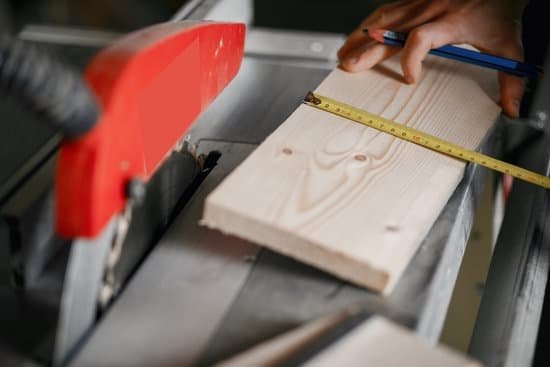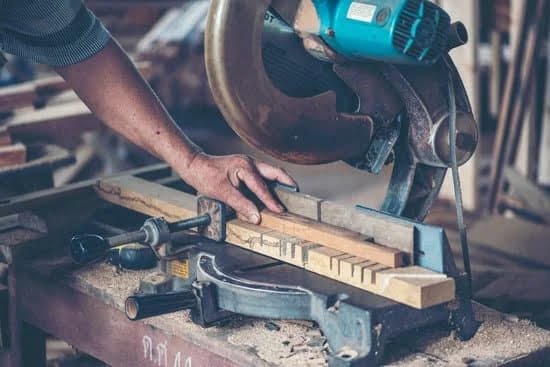What is the best fire extinguisher for a woodworking shop? Woodworking shops are at risk of fire due to the presence of flammable materials and electrical equipment. It is crucial to prioritize safety and be prepared in case of an emergency. This article will explore the different types of fire extinguishers suitable for woodworking shops, including Class A, Class B, and Class C extinguishers. Understanding the importance of having a fire extinguisher on hand can help prevent potentially devastating accidents.
Woodworking shops pose unique fire hazards that require specific firefighting equipment. From wood and paper fires to flammable liquid and electrical fires, it is essential to have the right type of fire extinguisher readily available.
This article will delve into the various classes of fire extinguishers and their effectiveness in combating different types of fires commonly found in woodworking shops. Additionally, factors such as size, capacity, and maintenance requirements will be considered when choosing the best fire extinguisher for a woodworking shop.
Furthermore, this article will provide detailed reviews and comparisons of top-rated fire extinguishers recommended for woodworking shops. By understanding the specific needs of a woodworking environment, individuals can make informed decisions when selecting the most suitable fire extinguisher to ensure a safe working environment. Finally, essential maintenance and safety tips for handling and storing a fire extinguisher in a woodworking shop will be outlined to promote effective emergency preparedness.
Types of Fire Extinguishers
When it comes to fire safety in a woodworking shop, having the right type of fire extinguisher is crucial. There are several types of fire extinguishers available, each designed to combat specific classes of fires. Understanding the different types and their suitability for a woodworking shop is essential for ensuring the safety of both the premises and those working within it.
Class A fire extinguishers are designed to combat fires involving ordinary combustible materials such as wood, paper, and cloth. These are the most common types of fires that can occur in a woodworking shop due to sawdust, wood shavings, and other flammable materials being present. Class A fire extinguishers use water or dry chemical agents to smother the flames and cool the burning material.
In addition to Class A fire extinguishers, woodworking shops should also consider Class B fire extinguishers for combating flammable liquid fires. These types of fires can occur due to the presence of paints, solvents, and oils commonly used in woodworking processes. Class B fire extinguishers use foam or dry chemical agents to suppress flammable liquid fires by separating the fuel from the oxygen in the air.
It’s also important for woodworking shops to have Class C fire extinguishers on hand to address electrical fires that may arise from faulty equipment or wiring. These extinguishers use non-conductive agents such as dry powder or carbon dioxide to smother electrical fires without posing a risk of electric shock to those attempting to put out the flames.
When considering what is best fire extinguisher for woodworking shop, it’s essential to take into account factors such as size, capacity, and maintenance requirements. By carefully evaluating these factors and selecting appropriate fire extinguishers for their specific needs, woodworking shops can enhance their overall safety measures and minimize potential hazards.
Class a Fire Extinguishers
One of the most recommended types of Class A fire extinguishers for woodworking shops is the water-based extinguisher. Water has the cooling effect necessary to reduce the temperature of burning wood or paper, thus preventing re-ignition. These extinguishers are easy to use and environmentally friendly as they do not leave any harmful residue after discharge. However, it is important to note that water-based extinguishers are not suitable for fires involving flammable liquids or electrical equipment.
Another option for combating wood and paper fires in a woodworking shop is a dry chemical fire extinguisher. This type of extinguisher can be used on Class A, B, and C fires, making it versatile for various fire hazards that may arise in a woodworking shop environment.
The dry chemical agent smothers the fire by forming a barrier between the fuel and oxygen while also interrupting the chemical reaction of combustion. When selecting a Class A fire extinguisher for a woodworking shop, it is crucial to assess the specific needs and potential fire hazards in the area to determine which type would be most effective.
| Type of Fire Extinguisher | Suitable For |
|---|---|
| Water-based | Wood, Paper Fires |
| Dry Chemical | Wood, Paper Fires; Flammable Liquids; Electrical Equipment |
Class B Fire Extinguishers
When it comes to choosing the best fire extinguisher for a woodworking shop, considering a Class B fire extinguisher is essential due to the nature of the materials and substances used in woodworking activities. Here are some specific types of Class B fire extinguishers that are recommended for use in woodworking shops:
- Dry Chemical Fire Extinguishers: Suitable for Class B fires, these versatile extinguishers work by interrupting the chemical reaction of the fire.
- Carbon Dioxide (CO2) Fire Extinguishers: CO2 extinguishers are effective for Class B fires as they displace oxygen and remove heat from the fire.
It is important not only to have the appropriate class of fire extinguisher but also to ensure that it has the proper size and capacity to address potential fires in a woodworking shop. Additionally, regular maintenance and inspection of Class B fire extinguishers is crucial to guarantee their functionality in case of an emergency. Ultimately, choosing the best fire extinguisher for a woodworking shop involves considering all relevant factors to ensure comprehensive safety measures.
Class C Fire Extinguishers
Understanding Class C Fire Extinguishers
Class C fire extinguishers are specifically designed to tackle fires involving energized electrical equipment. These types of extinguishers use non-conductive agents to suppress the fire without posing a risk of electric shock to the user.
It is important to note that using water or other conductive materials on an electrical fire can be extremely dangerous and should be avoided at all costs. Therefore, having a Class C fire extinguisher in a woodworking shop is vital for addressing electrical fire emergencies effectively.
Choosing the Right Class C Fire Extinguisher
When selecting a Class C fire extinguisher for a woodworking shop, it is essential to consider factors such as size, capacity, and ease of use. Since electrical fires can occur anywhere in the workshop, it may be advisable to have multiple Class C extinguishers strategically placed for quick access. Additionally, ensuring that employees are trained in the proper usage of Class C fire extinguishers is imperative for maintaining a safe working environment.
Factors to Consider
When choosing the best fire extinguisher for a woodworking shop, several factors need to be taken into consideration to ensure the safety of the workspace and its occupants. One of the most important factors to consider is the size of the fire extinguisher.
For a woodworking shop, it is essential to have a fire extinguisher with an adequate capacity to combat potential fires involving wood, paper, flammable liquids, and electrical equipment. A larger woodworking shop may require multiple extinguishers strategically placed throughout the workspace.
In addition to size and capacity, maintenance requirements should also be carefully considered when selecting a fire extinguisher for a woodworking shop. Regular maintenance and inspections are crucial for ensuring that the fire extinguisher is in proper working condition when needed. It’s important to choose an extinguisher that is easy to maintain and that comes with clear instructions for inspection and servicing.
Another important factor to consider is the type of fire commonly associated with woodworking shops. Class A, Class B, and Class C fires are all relevant in this environment due to the presence of wood, flammable liquids, and electrical equipment. As such, it may be beneficial to invest in a multi-purpose fire extinguisher that can handle different types of fires commonly found in a woodworking shop.
In summary, when choosing a fire extinguisher for a woodworking shop, it is crucial to consider factors such as size, capacity, maintenance requirements, and the types of fires commonly associated with this type of workspace. By carefully evaluating these factors, woodworkers can select the best fire extinguisher that suits their specific needs and provides effective protection against potential fire hazards.
| Factor | Consideration |
|---|---|
| Size | Choose adequate capacity based on shop size |
| Maintenance Requirements | Select an easily maintainable option with clear service instructions |
Best Fire Extinguisher for Woodworking Shop
When it comes to selecting the best fire extinguisher for a woodworking shop, it is crucial to consider the specific needs and potential risks associated with this type of environment. Woodworking shops often involve the use of flammable materials such as wood, sawdust, and flammable liquids, making it essential to have the appropriate fire extinguisher on hand in case of an emergency.
In this section, we will provide a detailed review and comparison of the top-rated fire extinguishers that are recommended for woodworking shops to help you make an informed decision.
Types of Fire Extinguishers
Before diving into the specific recommendations, it’s important to understand the different types of fire extinguishers available and their suitability for a woodworking shop. The most common types include Class A, Class B, and Class C fire extinguishers, each designed to combat different types of fires.
In a woodworking shop, there is a potential risk for fires involving wood, paper, flammable liquids, and electrical equipment. Therefore, it’s important to choose a fire extinguisher that can effectively address these potential hazards.
Best Fire Extinguisher Recommendations
- Kidde 21005778 Pro 210 Fire Extinguisher
- Amerex B500 Dry Chemical Fire Extinguisher
This multipurpose fire extinguisher is suitable for use on Class A (wood and paper), Class B (flammable liquids), and Class C (electrical) fires.
This reliable fire extinguisher is effective for use on Class A (wood and paper) and Class B (flammable liquids) fires commonly found in woodworking shops.
Considering the factors such as size, capacity, effectiveness on different types of fires prevalent in woodworking shops is essential when choosing the best fire extinguisher for your workshop. Regular maintenance and safety checks should also be conducted to ensure that your chosen fire extinguisher remains in optimal condition should an emergency arise.
By taking these factors into account and selecting a high-quality fire extinguisher tailored to the specific needs of your woodworking shop, you can effectively mitigate potential fire hazards and create a safer working environment for yourself and others.
Maintenance and Safety Tips
Choosing the best fire extinguisher for a woodworking shop is crucial, but proper maintenance and safe handling of the extinguisher are equally important. Here are some essential maintenance and safety tips to ensure that your fire extinguisher is always ready for use in case of an emergency:
- Regular Inspections: It is important to inspect your fire extinguisher regularly to ensure that it is in good working condition. Check the pressure gauge to make sure it is within the recommended range, inspect for any physical damage or corrosion, and ensure that the nozzle and hose are not blocked.
- Proper Storage: Store your fire extinguisher in a visible and easily accessible location in your woodworking shop. Make sure that it is mounted on a wall or placed on a sturdy stand to prevent it from being knocked over or damaged.
- Maintenance Schedule: Follow the manufacturer’s recommended maintenance schedule for your fire extinguisher. This may include professional inspections and servicing at regular intervals to ensure that the extinguisher functions properly when needed.
- Training and Awareness: Ensure that all employees in your woodworking shop are trained on how to properly use a fire extinguisher. Conduct regular drills so that everyone knows what to do in case of a fire emergency.
Proper maintenance and safe handling of a fire extinguisher can make all the difference in preventing or minimizing potential damage caused by fires in a woodworking shop. By following these essential tips, you can ensure that your chosen fire extinguisher remains effective when needed most.
Conclusion
In conclusion, it is crucial for woodworking shops to have the best fire extinguisher on hand to ensure a safe working environment. Considering the various types of fires that can occur in a woodworking shop, including wood and paper fires, flammable liquid fires, and electrical fires, it is important to select the appropriate fire extinguisher that can effectively combat these different types of emergencies.
Class A fire extinguishers are suitable for wood and paper fires, while Class B fire extinguishers are necessary for flammable liquid fires commonly found in woodworking shops. Additionally, Class C fire extinguishers should be available to tackle electrical fires.
When choosing the best fire extinguisher for a woodworking shop, specific factors such as size, capacity, and maintenance requirements should be carefully considered. It is essential to select a fire extinguisher that is easy to handle and maintain to ensure its readiness in case of an emergency. Additionally, proper maintenance and safety tips should be followed to ensure the effectiveness of the fire extinguisher and the overall safety of the woodworking shop.
In summary, having the best fire extinguisher for a woodworking shop is paramount in ensuring a safe working environment. By understanding the different types of fire extinguishers available and their suitability for combating specific types of fires found in woodworking shops, as well as considering important factors when choosing a fire extinguisher, woodworkers can take proactive measures to prevent and address potential fire hazards effectively.
Ultimately, investing in the best fire extinguisher is an essential aspect of maintaining a safe and secure woodworking environment.
Frequently Asked Questions
What Kind of Fire Extinguisher for Woodworking Shop?
In a woodworking shop, it’s important to have a fire extinguisher that is specifically designed for Class A fires, which are common in this type of environment. A water or dry chemical fire extinguisher would be suitable for combating wood and paper fires.
What Is the Best Fire Extinguisher for a Workshop?
The best fire extinguisher for a workshop is one that can handle multiple classes of fires, such as Class A (wood, paper), Class B (flammable liquids), and Class C (electrical). This typically means a multipurpose dry chemical extinguisher.
What Type of Fire Extinguisher Should You Have in a Shop?
In a shop setting, it’s important to have a fire extinguisher that can handle the variety of potential fire hazards present. This means having an ABC-rated fire extinguisher that can effectively combat fires involving wood, paper, flammable liquids, and electrical equipment.

Hi everyone! I’m a woodworker and blogger, and this is my woodworking blog. In my blog, I share tips and tricks for woodworkers of all skill levels, as well as project ideas that you can try yourself.





